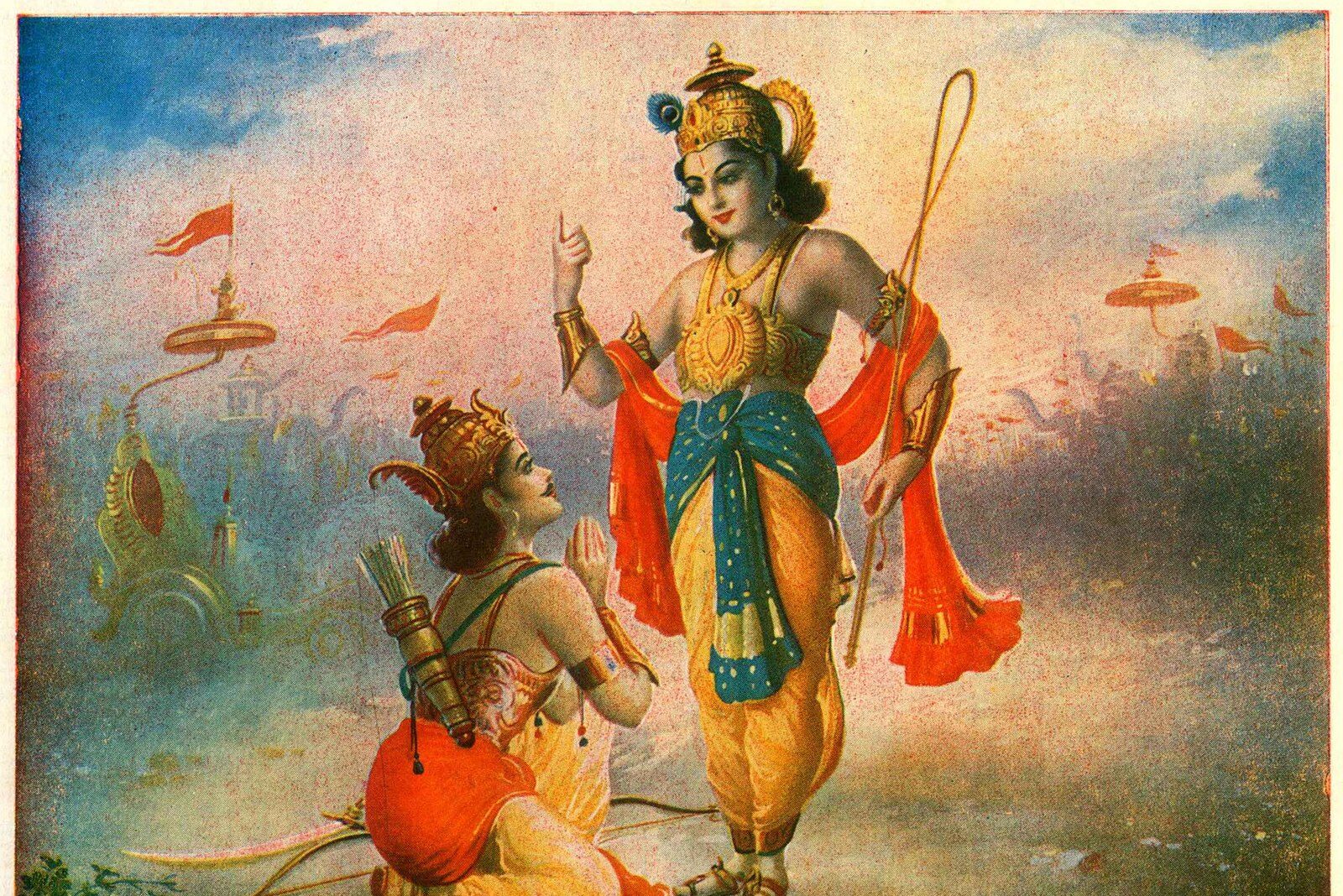
The goal of life, as described in Hindu teachings, is to realize who we really are: eternal spiritual beings beyond the impermanence of the material world.
Distracted by the dualities of life, we forget this goal, chasing after what we desire, and avoiding what we don’t. Focusing too much on the objects of the senses, we develop attachment to these objects. From attachment, lust arises, and from lust comes frustration. As this frustration turns into anger, our intelligence becomes compromised, and we lose sight of our true spiritual identity.
The process of becoming cognizant of this identity depends on a fixed intelligence, which can be achieved when we quell our insatiable desires and attain a peaceful state of mind. According to the Bhagavad Gita, this happens by living in the mode of goodness, a condition of existence in which one is unaffected by the continuous onslaught of happiness and sadness, and thus able to cultivate the knowledge, wisdom, and clear judgment necessary to make steady spiritual progress.
Though such a condition might seem out of reach for many of us, the Gita says that anyone can strive towards living in the mode of goodness. All it takes is cultivating the right habits and building from them over time. Some important ones include:
- Avoid harming other beings: Ahimsa, or non-harming, is an integral principle within Hinduism. Like a sponge, our psyche absorbs every subtle and physical experience we expose it to. This is why many Hindus trend toward a more plant-based diet. By minimizing the amount of violence that goes into producing the food we eat, we are minimizing the amount of violence we impress upon our consciousness, creating a more clear and tranquil mind for spiritual growth.
- Exercise: Because the Divine resides within all, and because the body is the vehicle that enables us to pursue spiritual life, the body is considered to be a sacred temple that should be treated as such. This means doing what is necessary to stay healthy, including some form of physical activity, which not only makes one stronger, but also helps to relieve stress, clear the mind, and combat depression. As such, developing an exercise routine, with the intention of cultivating gratitude and respect for the body, fosters the vitality and enthusiasm required to make real spiritual progress.
- Keep clean: A cluttered environment is a cluttered mind, and a cluttered mind has a very difficult time focusing on anything properly, what to speak of spiritual endeavors. By simply putting things away, and creating a cleaner living space, the burdens of the mind inevitably feel lighter, making it much easier to focus on higher ideals without feeling bogged down.
- Wake up early: Reaping the full benefits of a spiritual practice is most effectively done in the morning, when the mind is naturally more quiet amidst a still sleeping world. Finding even a little bit of time during these early hours goes a long way in nurturing a mental foundation that can help one better endure the tasks and challenges of an upcoming day.
- Associate with positive people: Perhaps the single best thing any person can do to start living in the mode of goodness is associate with people who already are. Changing and/or maintaining a particular lifestyle is inevitably easier when you’re around others who are living that lifestyle. For this very reason, Hindu texts extol the value of finding a guru, who can teach what he or she knows, as well as lead by example,.
When we are not living in the mode of goodness, we fall into nature’s lower modes — passion and ignorance. Those in the mode of passion are plagued by unlimited desires and longings, while those in the mode of ignorance are delusional and indolent.
In general, hardly any person in the world lives wholly in one mode. Everyone has a good side, a passionate side, and an ignorant or dark side. Regardless of where we’re at in life, we all have the ability to improve. By practicing the suggested tips above, we can all work towards cultivating the knowledge required to realize our true spiritual selves.








































